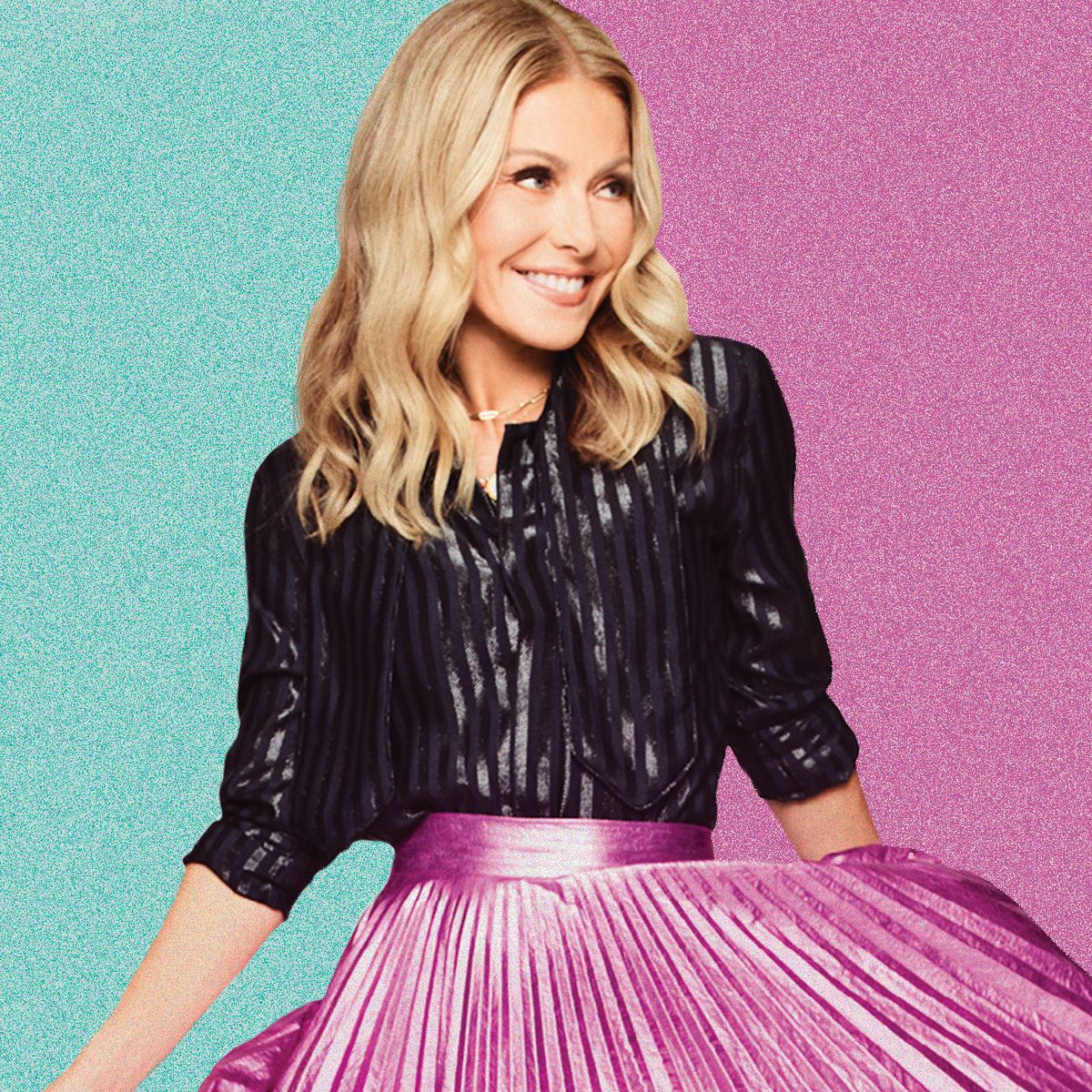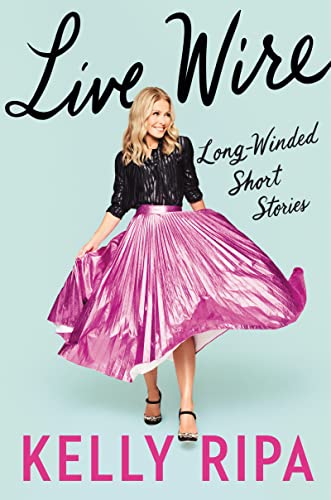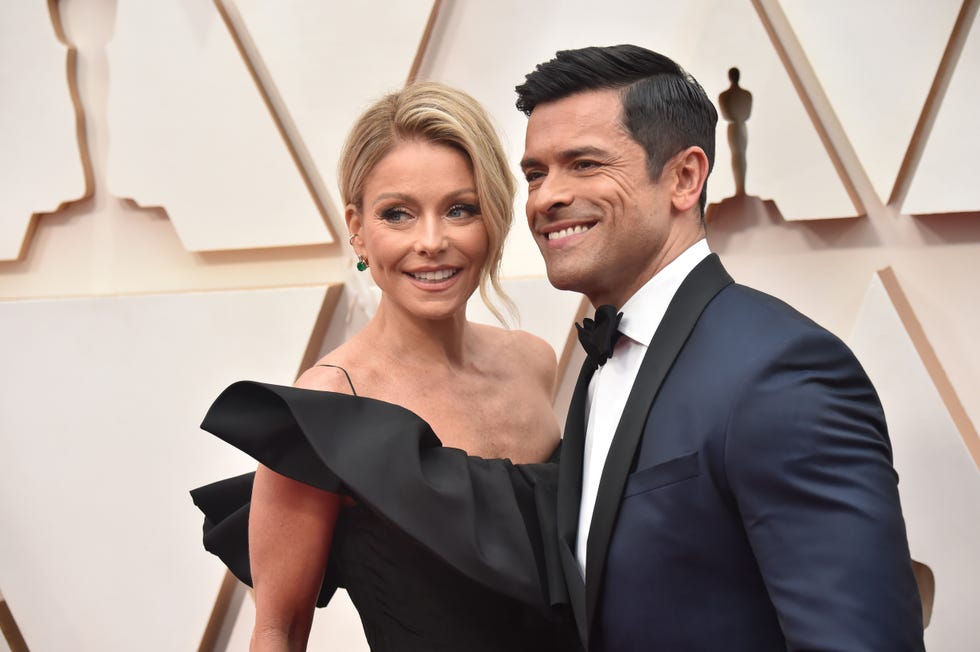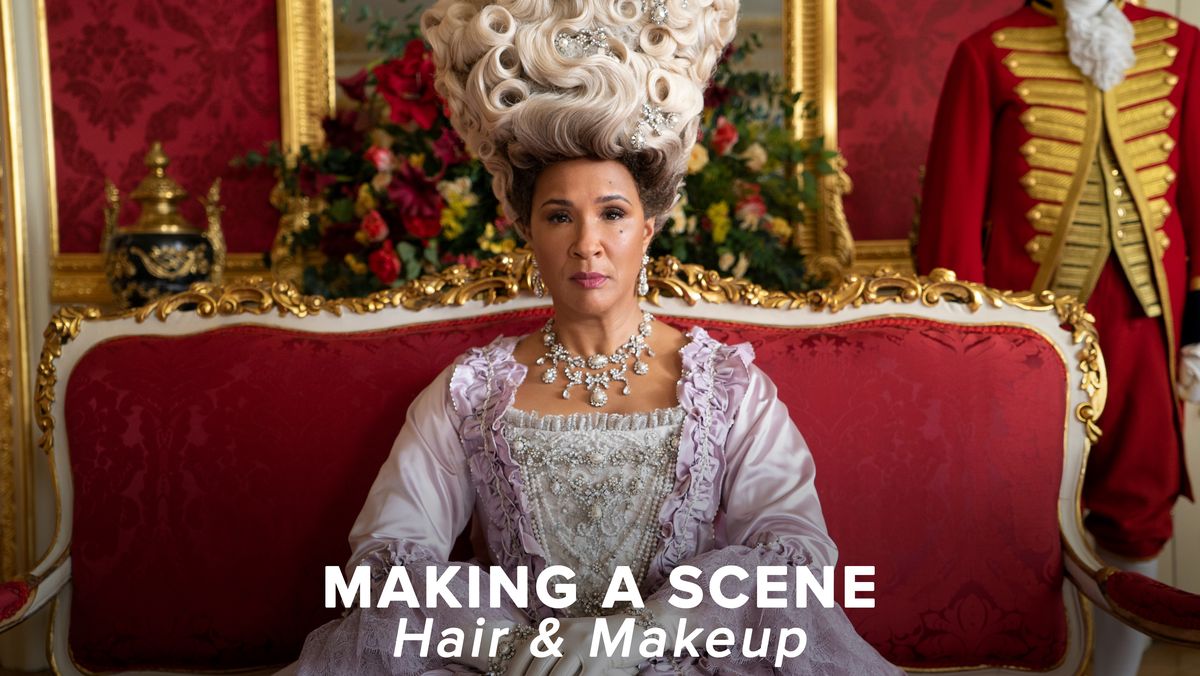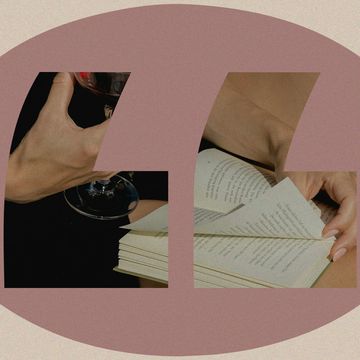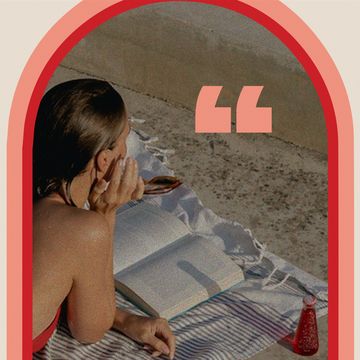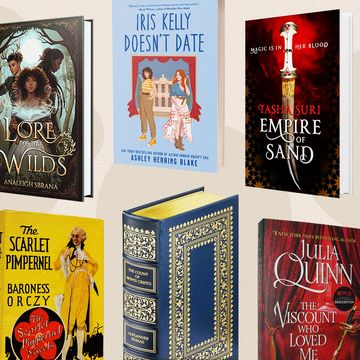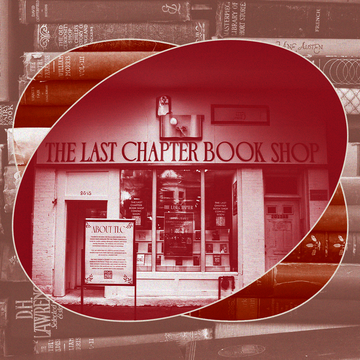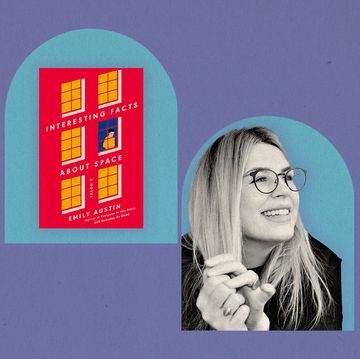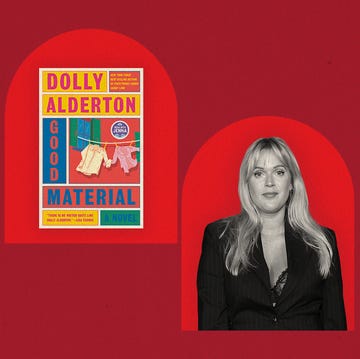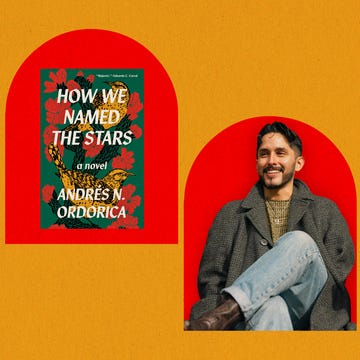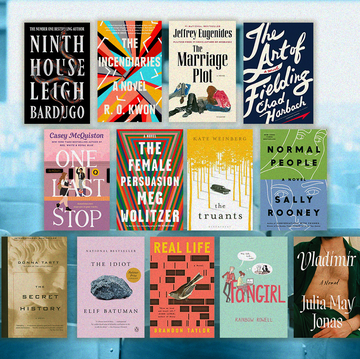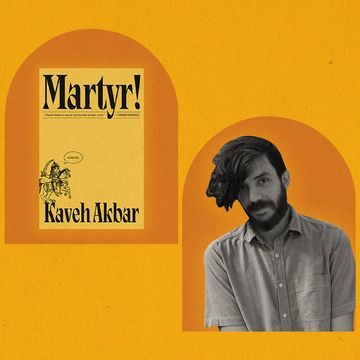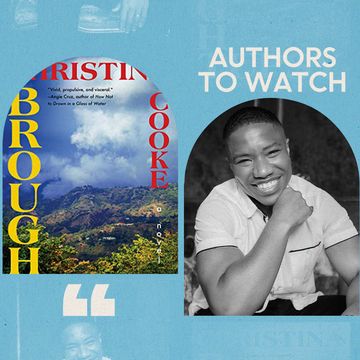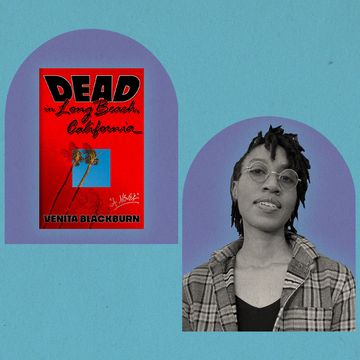Kelly Ripa has been mining her personal life for stories for the past 21 years, ever since taking on the role of Regis Philbin’s co-host on ABC’s beloved talk show Live. Every morning, millions of viewers tune in to hear Ripa chat with her current co-host, Ryan Seacrest, about her kids, her husband (actor Mark Consuelos), and their life in New York City.
Now, she’s sharing even more in her debut book, Live Wire: Long-Winded Short Stories. Told as a collection of 14 essays, the (very funny, albeit NSFW) book delves into areas that aren’t appropriate for family-friendly morning television. One story in particular, “Don’t Let Your Husband Pick Your Death Clothes,” has been getting a lot of advance press, for all the wrong reasons.
In early September, a Haute Living article about Ripa mentioned the essay, in which the talk show host writes that she once passed out during intercourse due to a ruptured ovarian cyst. Within days, Newsweek and other sites were plastering the internet with headlines screaming, “Kelly Ripa Reveals She Once Almost Died Having Sex With Mark Consuelos.”
When asked about it now, Ripa just shakes her head. “It’s bonkers,” she tells Shondaland. “In the [Haute Living] article, it’s a much smaller portion of a much greater piece of an overall story. How Newsweek chose their headline is fascinating because they clearly just scanned whatever names looked familiar to them. Part of what I write about in the book is that sometimes journalism is sloppy and unfair, and there’s no willingness to correct things that are clearly on the record.”
Shondaland recently chatted with Ripa about the writing of the book, workplace negotiations, her 26-year marriage, and what she hopes to do next.
SANDRA EBEJER: What made you decide to write this collection of essays?
KELLY RIPA: I worked with so many people over the years who would say to me, “Will you write the foreword for my book? Will you write the speech I’m about to give? You’re so funny. You’re a great storyteller. Can you write that down for me?” I started writing these notes to our staff during the pandemic that were really funny, and my producers encouraged me to post some of them on my [Instagram] stories. And when I did, book editors reached out to me and said, “We would love for you to write a book.”
[My editor] Carrie Thornton was the first person to approach me to write a book. I said, “Before we go through with this, I just have to know: Can I write? Because I don’t know if I can write beyond quips or funny speeches or a thank-you note.” I wrote a chapter, sent it to her, and she goes, “You can write. I knew you could do it then, and I am more confident now.” I wrote freehand. I didn’t set an outline. I just wrote what was speaking to me at the time. I would flip back through notes, journals, and calendars to fill in the gaps.
SE: Though the book is very funny, you touch upon some really important topics, such as the challenges of being a working mom and workplace negotiation. Was this intentional?
KR: They popped up when I reviewed things I had written down at night, when I was going through certain things at work. Twenty years ago, there was no conversation over power dynamics, workplace ethics, or workplace equality. That was not a discussion. If you were a working mother, you certainly didn’t complain about anything because you were so fearful that it might somehow impact your ability to further your career or earn a living. I didn’t want that. I felt like I was doing more good [by] working and raising a family. I felt like it was a benchmark I hadn’t seen very much of and that it was important to be seen.
SE: You allude to some of the challenges you’ve faced at work, and you write, “At that time, a different time, a pre-#metoo #timesup time, a pre-women belong in the room where decisions are being made time, I. Was. Miserable.” How are things different for you now in your career? Do you feel as though you’re in a better place to stand up for yourself?
KR: Absolutely, but it took me decades to get there. I don’t want any other woman that one day inherits my job or any other job to have to get to the decades part. It shouldn’t take decades. I think that women in general — I’m going to gender stereotype, which I don’t like doing, but I’m going to — have a hard time advocating for ourselves because we are used to being the advocates for everyone else, to make sure everyone else is okay, and putting ourselves last. In the entertainment industry, it has been counted on for women not to make noise or be disagreeable. It took me decades to learn that that was not okay and that the way I advocate for everyone else, I must apply to myself.
SE: When you look back on your years working with Regis Philbin, what comes to mind? What did you learn from him?
KR: I learned how to treat the job as a job, which I think is the most important thing. He taught me to be a really good storyteller. He was the best storyteller I’d ever met. When he took you on a journey, he took you there — you were there in the room; you got the picture. The most important thing, and I think I adapted this into my own writing, is that you have to be the fool in your own story. You can’t tell a story at somebody else’s expense. It’s not cool, it’s not chic, it’s not funny. It’s not cool to punch down. I try to make myself the idiot of every story. And quite frankly, I had limitless supply because I’ve been in this business for 33 years, so I have nothing but material.
SE: I’m a mom, and when I got to the essay about your kids heading off to college, I started to ugly cry. How are you and Mark doing now that your kids are grown and out of the house?
KR: I started writing that chapter the day we dropped Joaquin off at school, and then Mark and I got into an argument. Then I was like, “Oh, my gosh, this is it. We’re going to be those people.” We used to talk about those people. You know, when their child leaves, that’s it — that relationship is going tits up. Suddenly, we were on the precipice of being those people. I tend to overdramatize everything, so naturally there was no place for us between this mild disagreement over Joaquin leaving for school and divorce. To me, that was just a natural chain of events [laughs].
I have to say that as hard as those first couple of days were for us, the rest has been really great. We still see our kids, even though they live in different states and my daughter’s in another country. But what we are doing is learning things about ourselves anew. We are reading the newspaper on a Sunday morning instead of getting up, rushing out, getting to this event or a sporting thing or church or wherever. We were always going somewhere and doing something. Now, we wake up when our eyes open. Then we take the dogs for a walk. I’ve taken up cooking brunch instead of making something fast so we can get going. We see friends that we haven’t seen in years because their kids were doing this, and our kids were doing that, and we were in different directions. We also have aging parents, so we focus a lot of our time on them. It’s a different kind of parent-child dynamic we’ve taken up.
SE: Speaking of Mark, you’ve been married for 26 years, nearly half your life. Are there still things about him or marriage that surprise you?
KR: I am constantly shocked at what he hasn’t figured out about me, and I’m constantly learning things about him. It’s our endurance for wanting to know those things that I think is part of the reason we’ve been able to make our marriage work. And we enjoy being married to each other. We really like each other. Of course, we love each other; that doesn’t end. I have friends that are divorced, and they still have great love and affection for their ex-spouses. And I go, “Why didn’t you stay married?” They say, “I didn’t like him anymore.” I hear that a lot. Mark and I love each other, but we really like each other.
SE: You’ve acted in soap operas, sitcoms, and films; you’re the host of a successful talk show; you’re hosting a new game show; you’ve written a book — what’s next for you? Is there anything you hope to accomplish that you haven’t done yet?
KR: That’s a really good question. I like being off camera. It is what I like to do the most. I like creating spaces for other people to be on camera. I’ve written a couple of scripts. I’m hoping that maybe as time goes on, I’ll be able to pull away from being on camera and get behind the camera, because I really do like the creative process. But I don’t love being in front of the camera. It’s never something I’ve loved, but it’s the only way I’ve found that I’ve been able to make a living. But I really do prefer being off camera more than on camera. So, that’s where I would see myself heading.
This interview has been edited for clarity and length.
Sandra Ebejer is a New York-based writer who has contributed to The Boston Globe, The Washington Post, Greatist, Flood Magazine, and The Girlfriend from AARP. Find her on Twitter @sebejer.
Get Shondaland directly in your inbox: SUBSCRIBE TODAY
